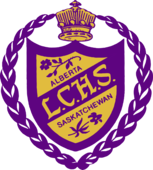Policy 13
APPEALS AND HEARINGS REGARDING STUDENT MATTERS
The Board makes provisions under which disciplinary actions ensure expeditious investigation and treatment of problems.
Specifically,
- Where the Director or designate confirms or modifies a student suspension of 4 to 10 days duration, the Director or designate shall forthwith report such suspensions to the Board in writing.
- The Board may investigate the circumstances of the suspension submitted to it and, where it does investigate, it shall conclude the investigation before the end of the period of suspension ordered.
- Where the Director or designate confirms a suspension of ten days, the Board authorizes the Director to refer the matter to an ad hoc Discipline Committee composed of the Director or designate and at least two of the following:
- Board Chair or designate
- Vice-Chair or designate
- A trustee is named by the Board Chair, or in the absence of the Board Chair, by the Vice-Chair.
- The Director or designate may refer the matter to the Board if circumstances and time appear to make this advisable.
- The Discipline Committee shall:
- Investigate the suspension, on behalf of the Board;
- Be authorized to suspend a student for up to one year;
- Give notice of every investigation to the student and his or her parent or guardian;
- Provide an opportunity for the student and his or her parent or guardian to appear and make representations before the Committee.
- Where the Committee makes a decision to expel a student, that decision:Shall be made before the expiration of the suspension.
- Shall be deemed to be a decision of the Board and shall have the same force and effect as if it were made by the Board;
- Shall be reported immediately to the Board.
- Further to Section 4, the Board, where it deems necessary, may by resolution expel a student from any or all of the schools in the Division for a period greater than one year provided the decision is based on:
- An investigation conducted under the provisions of Section 4 and where a unanimous decision to this effect is forthcoming from the Committee; or
- An investigation into the circumstances of the expulsion conducted by the Board and approved by a majority vote.
- On the request of either the student or his or her parent(s)/ guardian(s) pursuant to Section 2 or 4, at the expiration of one year, the Board will review and reconsider the expulsion of the student; the Board may:
- Rescind the expulsion of the student;
- Admit the student to a school on those terms and conditions that the Board considers appropriate.
- Throughout the above steps, the Director and designate shall be cognizant of the rights of the student and parent/guardian as provided for in legislation.
SPECIAL EDUCATION REVIEW
The Board recognizes the right of a student with exceptional needs or the parents/guardians of that student to request a review of a decision related to designation, placement, and program in accordance with provisions outlined in the Education Act and the Regulations applicable thereto.
Specifically,
- An independent student, or the parents/guardians of a student with a disability, shall have access to a review process in the event he/she disagrees with:
- The designation of the student or the failure to designate the student as having a disability;
- The placement of the student;
- The program is provided to the student.
- The right to a review is limited to decisions with educational or developmental implications for the student. The right for review does not apply where the disagreement with respect to the placement of the student is based on:
- Parental preference as to the location of the delivery of the program;
- Parental convenience;
- Other factors unrelated to the impact of the location of the educational instruction on the student’s education and development;
- Location within an educational institution;
- Any other reason that relates to or is similar in nature to those listed in clauses 2.1 to 2.4; or
- An allegation of discrimination pursuant to the Human Rights Code or the Canadian Charter of Rights and Freedoms.
- At any stage of the review, the student or the parents/ guardians of the student may choose to be accompanied by a friend, or another person of their choice.
- The Director or designate may make any interim decision he/she considers necessary pending the decision of the review. During the appeal and review period, the parents have the right to either have their child exempted from school or have him/her remain in the initial placement until the dispute is settled.
- The Division will attempt to make every effort to resolve a designation, placement and/or program decision in a manner amicable to the student, parents/guardians and the Division. The following steps outline the initial action that is required prior to requesting a formal review process:
- The student or parents/guardians shall discuss the decision in question with the teacher(s) and the in-school administration;
- If there is no resolution, the student or parents/guardians shall request that the Director review the designation, placement or program decision;
- If there is no resolution, prior to initiating a review, the Director will invite a member of the Ministry of Education Student Supports Branch to facilitate a resolution.
- If there is no resolution, the Director shall inform the student or parents/guardians of the procedures necessary for initiating a formal review process.
- The following steps outline the process required to initiate a formal review process:
- The request for a formal review shall be in writing directed to the Director, and shall set out the reasons for disagreement with a designation, placement or program decision.
- Within ten school days of receiving the request for a formal review of a decision, the Director shall respond in writing to the individual(s) outlining:
- The steps in the formal review process;
- The procedure used to establish the neutral third party;
- The expenses the Board will cover; and
- The anticipated timeline of the formal review process.
- The Director shall notify the Division personnel involved in the decision of the request for review and shall provide them with information concerning the circumstances of the review, including a copy of the written request for review.
- A review of the original decision will be conducted by a person not involved in that decision, i.e., a neutral third party. The neutral third party precludes the appointment of student/parent(s)/guardian(s) or an employee/trustee of the Division to that position.
- Within 10 school days of receiving the request for a review, the Director will arrange a meeting date with the individual requesting the review to determine the neutral third party. Note: The neutral third party must be a person acceptable to both parties.
- To select a neutral third party, the following process will be used:
- The Director will nominate three persons to the student/parent(s)/guardian(s). The student/parent(s)/guardian(s) will review the listing and determine if one of the persons from the Director’s listing is a suitable choice as a third party representative;
- If none of the three persons selected by the Director is acceptable to the student/parent(s)/guardian(s), the student/parent(s)/guardian(s) will suggest three different candidates to the Director. The Director will review the suggested list and determine if a selection can be made;
- In the event that no agreement on the selection of a neutral third party can be reached, the review process is deemed to be frustrated and the student/parent(s)/guardian will be heard by the Board.
- Within 30 school days of his/her appointment, the neutral third party will conduct the review and submit his/her report.
- Conducting the Review:
- The neutral third party will receive submissions from the student, the student’s parent(s)/guardian and Division officials. These submissions may be supplemented by representations from other individuals called to the process by either the parents or the Director or designates.
- All written information gathered will be shared with all parties.
- As part of the procedure, the neutral third part may call upon any person who has participated in the educational planning/decision-making process to clarify the issues around the original decision.
- Submitting a Report: The neutral third party will submit report copies to the Board, the individual requesting the review, and the Director. The report will include an analysis of the situation under review and will make appropriate recommendations.
- Submitting Counter Views: Either interested party upon receiving the neutral third party’s report may submit a written response to that report to the Board prior to the next regular meeting of the Board.
- Board Decision:
- The Board will receive the neutral third party’s report and any counterview written by either of the interested parties at the next regular meeting of the Board;
- After due consideration of all information presented, the Board will render its decision;
- The decision, with reasons, will be forwarded in writing to the individual requesting the review with copies to the Director and designates;
- The final decision rests with the Board.
- Conducting the Review:
- Other Considerations
- Costs
- The Division will assume the costs of the neutral third party, for costs associated with persons appearing on behalf of the Division and for research and presentations on its behalf.
- Parent(s)/guardian will pay for costs associated with persons appearing at their request and for research and presentations they gather or commission.
- School Attendance: During the review period, following consultation with the parent(s)/guardian, the Director may exempt the child in question from school attendance or may have the child remain with the initial designation, placement or program until the dispute is settled.
- Board Hearing: In the event, the third-party review process is frustrated the following procedure will be followed:
- Within thirty school days of the process being frustrated, the Board will make provisions for both interested parties to present, in closed session, written and/or oral briefs to the Board at a regular meeting. The student/parent(s)/guardian may present their case first with clarifying questions being asked by trustees. Division personnel will present their case second with clarifying questions being asked by trustees. Although not intended to be a debate, the student/parent(s)/ guardian may have the last word prior to the Board deliberating in isolation from both interested parties. If the Board requires further clarification or elaboration from either interested party, such undertakings will take place with both interested parties in attendance.
- After duly considering all information presented, the Board will communicate its decision and supporting reasons to both interested parties. This may occur orally, if possible, followed with a written response to both parties outlining the decision with reasons. The decision of the Board is final.
- Costs
ALL OTHER STUDENT MATTERS
An ad hoc Appeal Committee of the Board will hear appeals on other administrative decisions that significantly affect the education of a student. The Board will determine the terms of reference and membership of the Committee including the appointment of the Committee Chair.
The principles of natural justice shall apply to the entire appeal process.
SPECIFICALLY:
- Prior to a decision being appealed to the Appeal Committee, it must be appealed to the Director.
- Parents of students, and independent students, have the right to appeal to the Appeal Committee a decision of the Director. The Director must advise parents and students of this right of appeal.
- The appeal to the Appeal Committee must be made within 5 days from the date that the individual was informed of the Director’s decision. The appeal must be filed in writing and must contain the name of the party filing the appeal, the date, the matter at hand, and the reason for the appeal.
- Parents, or students as above, when appealing a decision to the Appeal Committee, have the right to be assisted by a resource person(s) of their choosing. The responsibility for engaging and paying for such assistance rests with the parents or students.
- The hearing of the appeal must be scheduled so as to ensure that the person making the appeal and the Director, or designate, whose decision is being appealed, has sufficient notice and time to prepare for the presentation.
- The appeal will be heard in camera, with specified individuals in attendance.
- The appeal hearing will be conducted in accordance with the following guidelines:
- The Chair will outline the purpose of the hearing, which is to provide:
- An opportunity for the parties to make representation in support of their respective positions to the Appeal Committee. This information may include expert medical, psychological, and educational data and may be presented by witnesses;
- The Committee with the means to receive information and review the facts of the dispute;
- A process through which the Committee can reach a fair and impartial decision.
- Notes of the proceedings will be recorded for the purpose of the Board’s records.
- The Director and/or staff will explain the decision and give reasons for the decision.
- The appellant will present the appeal and the reasons for the appeal and will have an opportunity to respond to information provided by the Director and/or staff.
- The Director and/or staff will have an opportunity to respond to information presented by the appellant.
- Committee members will have the opportunity to ask questions or clarification from both parties.
- No cross-examination of the parties shall be allowed unless the Chair deems it advisable under the circumstances.
- The Committee will meet without the respective parties to the appeal in attendance to arrive at a decision regarding the appeal. The recording secretary will remain in attendance. The Committee may have legal counsel in attendance.
- If the Committee requires additional information or clarification in order to make its decision, both parties to the appeal will be requested to return to the hearing for the required additional information.
- The Committee decision and the rationale for that decision will be communicated to the appellant by telephone and by double-registered letter within three days of the hearing.
- The Chair will outline the purpose of the hearing, which is to provide:
Legal Reference: Section 141, 142, 150, 151, 152, 153, 154, 155, 158, 175, 186, 186.1, 231, Education Act, 1995; Regulations 48, 49, 50, 50.1, 52 Human Rights Code
Canadian Charter of Rights and Freedoms
Adopted: June 2007
Last Reviewed: May 25, 2022





























